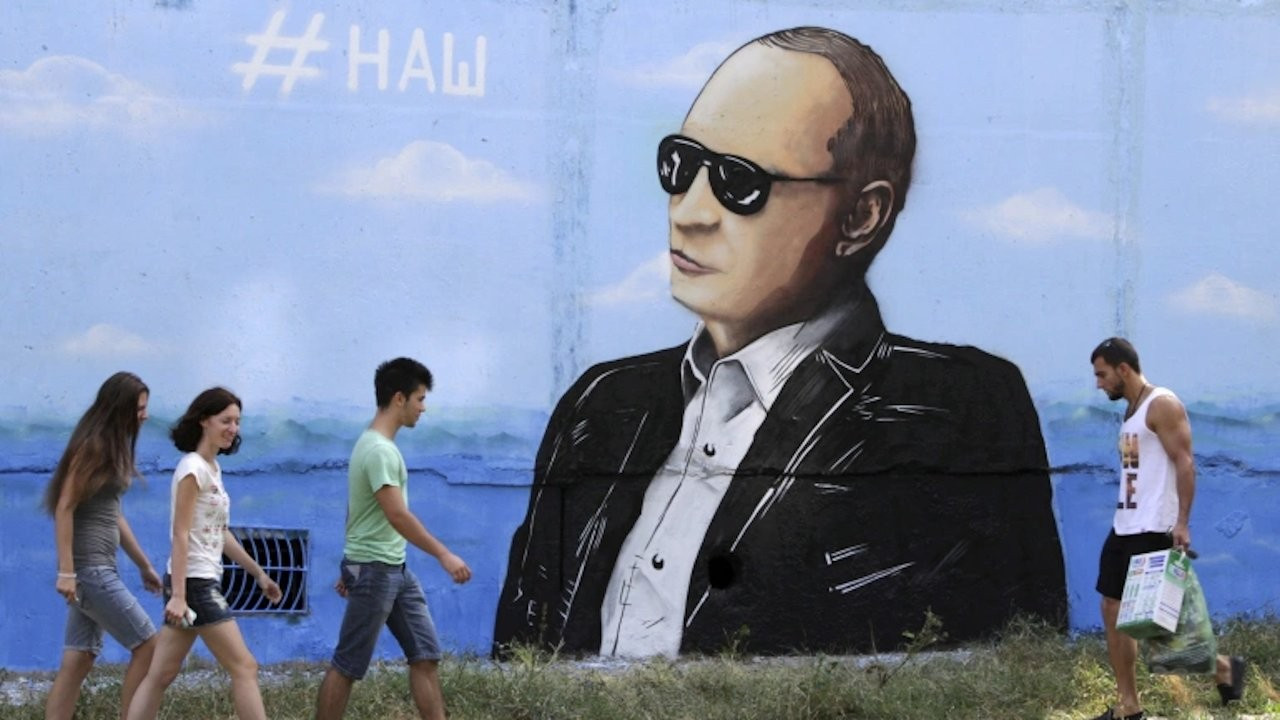In the wake of Sochi Erdoğan's foreign policy in tatters
All eyes on Rome then? Maybe. Imagine for a second Biden showing up at the meeting with McGurk in tow. Most likely that will not happen, but still. All in all, walking on water like Jesus does not seem to be an option in diplomacy. For the time being, Turkey’s foreign policy appears to be disjointed and at sea’s end.
For the first time during his reign, Erdoğan is trailing behind his would-be opponents in opinion polls and hence leading an up-hill battle. The already squeezed economy is under pandemic’s pressure and feeling the heat of sky-rocketing energy costs. The central bank’s reserves are literally empty. The presidential and general elections are behind the corner. Depending on the forecast, they will be held in spring or fall 2022 or in spring 2023 the latest.
Ergo, it was assumed (I had assumed so as well) that, even though the narrative aimed at the domestic consumption (read: propaganda) would continue unabated, the diplomacy itself would have been radically changed as Erdoğan undertook a long and wide U-turn. Call it pragmatism or opportunism and sell it as realpolitik if you wish, Ankara would be mending ties with the EU by silently withdrawing from the Eastern Mediterranean and replacing war-mongering with Greece by presidential and ministerial level contacts as well as with bureaucratic level exploratory consultations. The EU, ditching the “pacta sund servanda” principle, would have shelved Turkey’s candidacy indefinitely and be eager already to see it as its’ refugee depot and its main bulwark against irregular migration.
With the UAE, the KSA and Egypt, rehabilitation started with phone calls, continued again with exploratory talks, climaxed with the the odd visit etc. Muslim Brothers’ Istanbul antennas were silenced and some were kindly shown the door. The four-fingered “rabia” salute became a relic of the past. In Libya, Ankara appeared to play along with the political transition process. In Syria but especially in Iraq, the U.S. and the EU customarily turned a blind-eye to Turkey’s repeated military incursions as these were considered counter-terrorism operations and as the so-called geopolitical considerations outweighed concerns about the lamentable situation of human rights, freedom of expression and lack of rule of law at home.
With the U.S., with Trump and then with Biden, the sanctions due to S-400 procurement from Russia, the Halkbank and now the SBK cases were kicked down the road as Turkey readily shouldered the burden of standing up to Russia in the Baltic, Polish and Black Sea theaters under NATO’s banner. Erdoğan also offered to secure and manage Kabul International Airport just in time before his first -and till now only- face-to-face meeting with Biden in June in Brussels. Now, the second meeting between the two leaders is scheduled at the end of this month in Rome in the margins of the G-20 summit.
Yet, as it always does, something happened in between. Erdoğan went to New York to attend the UNGA with high hopes to meet Biden. That did not happen. And, almost as soon as having touched down back in Ankara, Erdoğan took off again for Sochi to meet with his long-time pal Putin –after having targeted Biden with not so kind words. Only, this time around, this was a second visit in a row by Erdoğan to Putin even though diplomatic etiquette would have Putin visiting Turkey. Never mind. But also, the Russians had refurbished the aging aircraft of the Syrians enabling them to bomb targets within shouting distance of the Turkish army’s monitoring posts in Idleb and were not happy to hear repeated and high-pitched outbursts of Ankara about the annexation of Crimea and the territorial integrity of Ukraine and Georgia.
Again concerning Syria, the U.S. and Russia had opened direct communication channels and seemed to find or at least explore common ground on how to get rid of this Syria business once and for all by pushing the Kurds back into the fold. The U.S. had switched the Caesar Law sanctions off momentarily to allow Jordanian electricity and Egyptian gas to reach Lebanon through Syria. Gulf states, Egypt and Jordan had made bolder moves to ease Syria back into Arab League. A more confident Assad now eyed eagerly Idleb by moving troops from the eastern front to the west coast. Putin at least expected Turkey to stick by the two-year old agreement to de-marble jihadist organizations and re-open the M-4 highway. In the background somewhere, Greece signed a defence pact with France and conducted joint military exercises with the UAE and Egypt.
Therefore, it was safe to assume Erdoğan to be tense on his way to Sochi. With great fanfare and somewhat heightening expectations, he had announced that there would no delegation to accompany him as the meeting would be strictly one-on-one. Afterwards, the Russian side coldly informed the media that Idlib, Crimea and the nuclear power stations were on the agenda. The much expected meeting had taken merely 2 hours and 45 minutes –including the translation.
Whereas, on the plane flying back to Ankara, Erdoğan touched upon many more items. Those ranged from deepened military cooperation involving submarines –to be built by and bought from Russia instead of Germany, joint production of fighter jet engines and even a space program with Russian rockets taking off from sea and land platforms in Turkey. Erdoğan also complained about the presence of a PKK-YPG office in Moscow and invited his counterpart to abide by the bilateral agreements. He was quite complacent with Putin though as he had concluded that “we had to increase our solidarity with Russia against terrorism.” For a reason: Erdoğan had reserved his ire for someone else when it came to PKK-YPG topic.
These are his words* on the plane: “You know, there is this guy called McGurk. This guy is almost in charge of the command and control of terror organisations.” As Erdoğan answers another question, he feels the need to re-visit the issue: “I just mentioned a name: McGurk. This actually is a name that supports terror. This man is almost the executive officer of the PKK-YPG-PYD. This is a man who actually hangs around with terror organisations hand in hand, arm in arm.” Then he adds “sooner or later America must leave this place and this place should be left to the Syrian people.”
One must note the fact that the Principal Deputy Assistant Secretary of State for Near Eastern Affairs Joey Hood and CENTCOM Gen. McKenzie had just visited the SDF commander Mazlum Kobane right after the Turkish Defence Minister Akar previously had mused aloud that “the US must work with Turkey in the Middle East” and that the thorniest issue between the two countries was not the S-400’s but the US’ arming and equipping the YPG. One must also note that as Erdoğan was taking a shot at White House MENA Coordinator McGurk, a SDC delegation led by PYD’s Elham Ahmad was being received by again the same Mr. Hood at the State Department in DC.
In the wake of Sochi too there was a flurry of activity. The National Security Council (“MGK”) met the following day after Erdoğan came back from Russia. In its’ press statement there was no mention of US’ support for PKK-YPG or an intended increased military cooperation with Russia. Akar placed a phone call to his US counterpart SecDef Austin, not much meat there either. Erdoğan’s National Security Adviser Kalın spoke to Der Spiegel and asserted that the West treated Turkey as an invading power in Syria whereas Turkey acted in self-defence. “If the right to enter Syria is recognized for the US and Russia, we have the same right too” he added. Foreign Minister Çavuşoğlu was in Aydın in the Aegean and questioned somewhat incoherently within the same breath China’s presence (?) in Afghanistan, France’s in Eastern Mediterranean and again Russia’s and the U.S.’ in Syria.
All eyes on Rome then? Maybe. Imagine for a second Biden showing up at the meeting with McGurk in tow. Most likely that will not happen, but still. All in all, walking on water like Jesus does not seem to be an option in diplomacy. If excuses are made, alliances and power balances are ignored, that holds for everyone. For the time being, Turkey’s foreign policy appears to be disjointed and at sea’s end.
*A full transcript of Erdoğan’s answers to accompanying hand-picked media members on the plane was distributed later by his Communication Directorate. Translation is mine.


 Sochi meeting ends with Putin's advice to Erdoğan to get Sputnik V as booster shotDiplomacy
Sochi meeting ends with Putin's advice to Erdoğan to get Sputnik V as booster shotDiplomacy Erdoğan says Turkey's frictions with US were 'worth it'Diplomacy
Erdoğan says Turkey's frictions with US were 'worth it'Diplomacy Kremlin on Crimea rift: Thank God nationalists are not in power in TurkeyDiplomacy
Kremlin on Crimea rift: Thank God nationalists are not in power in TurkeyDiplomacy